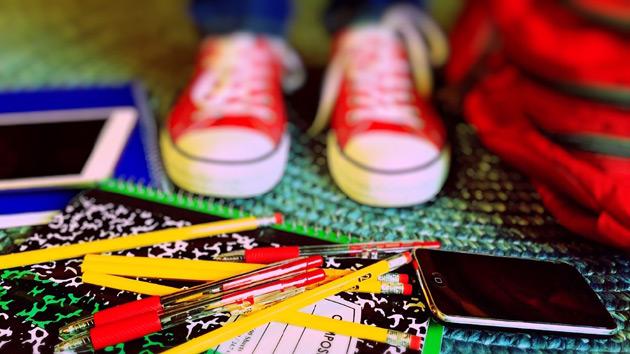Recently I have been repeatedly asked to write something about inclusive education. The debate about this topic has become extremely polarized and I have not been able to figure out which end of the spectrum to start from if I want to avoid repeating arguments I have heard 100 times and adding fuel to the fire already burning around this subject.
Recently, though, I experienced the fact that inclusion is not happening somewhere far away, but that it concerns my immediate surroundings, and unpleasantly so. A new teacher has arrived at a school where inclusion is not just talked about, but is absolutely lived every day, and my children have told me, with expressions of disbelief, that when some first-grade girls standing in the corridor did not turn their heads in the direction the new teacher told them to, she grabbed them under their necks to get the desired result.
My children have also told me that this same teacher banged the head of a boy who is a bit slower than the others, or brutally shoved him – the children could not agree on what precisely had happened. The reason for her behavior, however, they did agree on: That boy is slower than the others.
At this particular school, the children are accustomed to the idea that being slow is no catastrophe, and that people behave towards one another there with respect (at least until now) and that they address disagreements together calmly. Inclusion is apparently not just an approach to education, but to a way of life.
If people have never experienced inclusion before, it seems difficult for them to grow accustomed to it, or it just seems simply unimaginable to them. That’s how it all begins: When somebody is slow, then he will write the number “4” differently than everybody else, or he will have forgotten to bring his scissors, so he will have to be punished for that, humiliated, and shown what we have elbows for.
That kind of behavior brings inclusion to an end. Inclusion is the feeling that the world won’t end when we make an error, that problems can be resolved, and that what is important is that we get along well together.
Children can be taught this easily, overall. When they are in an environment that is set up for mutual consideration, then they normally learn how to talk about their relationships, how to work on them, how to adapt their own tempos to those around them, and how to enjoy each and every small success, theirs and everybody else’s.
What are we to do with the adults who have never experienced this, but who today are supposed to implement inclusion because the law requires it? How can we aid these teachers, who themselves as children experienced just one moment of contact at the beginning of each class, were expected to clasp their hands behind their backs, and to have their napkin folded under their snack in a neatly-ironed square, everybody exactly the same – how can we explain to these teachers that things can be done differently?
How do we explain to somebody who has never experienced acceptance how to accept others? A different recent experience brought me hope in this regard.
After teaching a day-long course for a group of bureaucrats in the state administration who shall remain nameless, I asked those participating to choose a postcard from a collection that reflected how they felt at the end of the day. I was moved by the results.
Everybody chose images that somehow represented harmony or satisfaction – a well-fed baby, a sunlit meadow, water reflecting trees, etc. In the morning, when we had begun working, that was decidedly not what those people looked like.
The group was full of individuals who were exasperated by the system and who had the feeling that they were caught between two millstones – on the one hand, the law and regulations they were supposed to fulfill, and on the other hand their attempts to behave towards their clients decently and humanely. Frequently these people are in situations where these two pursuits absolutely clash, and they combine over the course of several minutes into one person, standing behind a counter, who has not much time in which to make a decision.
What is to be done? It’s not so easy to change the system, so their frustration grows.
One thing, however, I can always change. I can always attempt to change myself, to try to figure out how to arrange things so that I will have a better chance of success, so I can negotiate the right conditions, be more satisfied, and have more strength to make sure everybody else around me is more satisfied as well.
The educator John Dewey (1859-1952) said that education should satisfy us. People are educated when they are able to use their potential, to grow and develop, not just intellectually, but as whole human beings.
That kind of education creates the experience of the well-fed infant who is so satisfied that he or she has an appetite for development and growth. The question, then, is how to arrange for the teachers themselves to be so satisfied that they do not need to work with the “carrot and stick” system.
The teachers have not being taught by the system in any other way, and the children still do not have enough power in the system itself. Somebody must arrange for everybody’s satisfaction, because otherwise “inclusion” will become, once again, just an empty term.
That would be a shame. Life at an inclusive school is much better than life at a normal school, where a pair of forgotten scissors is a disaster equivalent to the end of the world.
Dr Dana Moree is the head of the Department of Civil Society Studies at the Faculty of Humanities, Charles University in Prague

